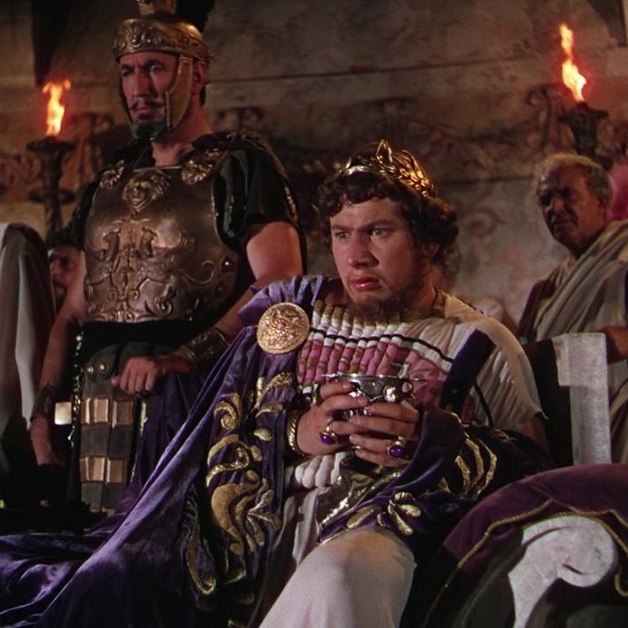
As we’ve highlighted before, Emmanuel Carrère’s new book (novel? memoir? biography?) on St. Paul and the early Christians often reads like a diary fused with historical fiction. Carrère, well-known in France for his unique non-fiction storytelling, believes that the only way he can really communicate a subject is by looking as honestly as possible at himself. In this book, then, that means capturing the New Testament through his own relationship with and (un-)belief in its God. A powerfully honest and captivating reimagining of both the nature of belief and the radical message Paul carried, this passage gives a glimpse of what moral code distinguished the early Christians from the Jewish and Greek backgrounds they had.
Of course it was neither new nor foreign to the ancients’ morals to say that it’s better to be good than bad. Greeks and Jews knew the Golden Rule, about which Hillel, a rabbi contemporary of Jesus’, said that it summed up in itself all the Law: “Do unto others what you would have them do unto you.” There’s nothing scandalous in the idea that it’s better to be modest than a braggart, either. More humble than haughty: same thing, it’s a commonplace of worldly wisdom. But with one thing leading to another, taking Paul seriously you’d soon say it’s better to be small than big, poor than rich, sick than healthy. And at this point the Greek spirit was completely at a loss…
One of the scenes that to my knowledge best evokes the sort of shock that this code of conduct must have caused is found in Henryk Sienkiewicz’s Quo Vadis, once an immensely popular historical novel on the first Christians in the days of Nero. The hero, a Roman officer, behaves very badly during the entire first part of the book. I can’t remember the details, but his file includes persecution, rape, blackmail, and perhaps murder. When the plotline has him fall into the hands of Christians who have such good reason to be angry with him, he’s not exactly bursting with confidence. He expects them to do what he would without batting an eyelid if he were in their place: torture then kill him. He wouldn’t do it because he’s bad, but because that’s what any normal man does when he’s severely harmed and then gets a chance for revenge. It’s the rule of the game. But what happens? Instead of stirring the coals with a red-hot iron and applying it to his eyes, the head of the Christians, whose adoptive daughter the officer had personally handed over to Nero, unties his hands, embraces him, calls him his brother, and frees him with a smile. At first the Roman believes his foe is taking cruelty to the limit, then he understands that it’s not a joke. The man who should be his worst enemy really has pardoned him. In running the huge risk of letting him go, the Christian has placed his trust in him. He has abdicated his position of strength and put himself at his mercy. At that moment a shift takes place in the Roman officer’s heart. He realizes that these miserable, persecuted people are stronger than he is, stronger than Nero, stronger than everything, and all he wants is to be one of them. In the name of their faith, which in that instant also becomes his own, he is read to let himself be thrown to the lions–which promptly happens.
The Acts of the Apostles is full of adventures and miracles, but there are no episodes like this. Nevertheless, I’m convinced that the Christian sect’s force of persuasion had a lot to do with its ability to inspire astonishing acts–and not just words–that ran counter to normal human behavior. People are constituted in such a way that the best of them want good for their friends, while all of them want evil for their enemies. They prefer to be strong rather than weak, rich rather poor, big rather than small, dominant rather than dominated. That’s the way it is, that’s normal, no one ever said it was bad. Greek wisdom doesn’t say it, nor does Jewish piety. Now, however, men are not only saying the exact opposite, they’re also doing it. At first they’re not understood, no one sees the interest of this extravagant inversion of values. And then people start to understand. They start to see the interest, that is to say, the joy, the power, the intensity of life, that the Christians draw from this apparently aberrant behavior. And then they have only one desire, to do as they do.

COMMENTS
3 responses to “An Extravagant Inversion of Values”
Leave a Reply













Holy crap! That’s incredible!
A very French twist. Jesus is a fabrication of Paul adopted and enhanced by Luke, which had some interesting influences on Greek and Roman thought, based entirely on the fabrication of Jesus the resurrected miracle worker. But only the simple and crude let the hoax thing hang them up. It all produced some ironically heroic and selfless acts. This seems to be Carrere’s position. I prefer Houellebecq’s unbelief, although this is a beautiful quote.
I’m stealing this for sure.